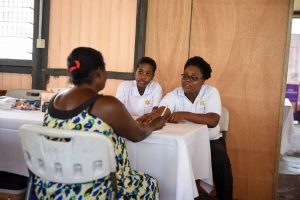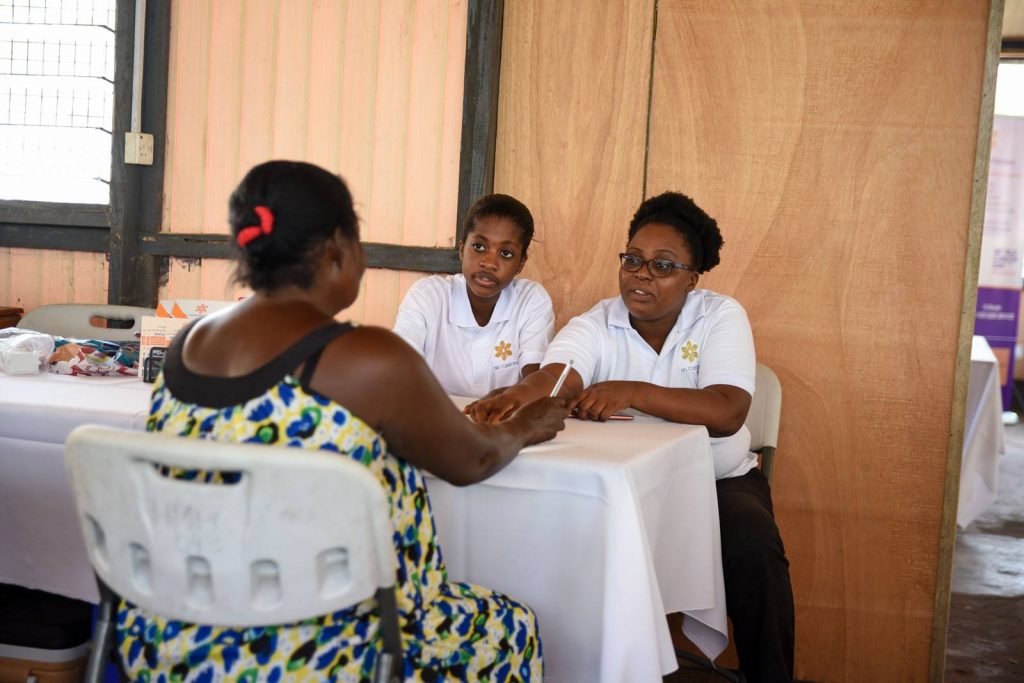A Breast Cancer awareness creation programme has taken place at Osu in Accra.

The programme, organized by SG Cancer Foundation, a Non-Governmental Organization (NGO), was on the theme: ‘Early detection is critical and very necessary in fighting and surviving cancer.’
It aimed to increase cancer awareness in Ghana, encourage screening and early testing to improve survival rates, and encourage more people to provide support to persons diagnosed with cancer in a variety of ways, including financial.
More than 1,000 persons–mostly women–were sensitized on the need for Breast Self-Examination (BSE) which is the regular examination of one’s breasts, an important way to detect breast cancer early, when it is more likely to be treated successfully.
In a statement, Mrs Pearl Dua, Communications Director, SG Cancer Foundation, said the Foundation aimed to increase cancer awareness in Ghana and provide comprehensive support for persons diagnosed with cancer including counseling, providing information on resources, linking persons diagnosed with other cancer survivors and providing some financial support for persons who are unable to afford the full cost of treatment.
Mrs Dua said SG Cancer Foundation was also committed to encouraging screening and early testing to improve survival rates, and encouraging more people to provide support to persons diagnosed with cancer in a variety of ways, including financial, adding that as a complement to the awareness creation programme, the Foundation was also sponsoring mammograms for 10 women.
Breast cancer– the most common cancer in women worldwide and, in most countries, the most common cause of cancer among women– is a malignant tumor that forms in the cells of the breast and although mostly found in women, men are also susceptible to breast cancer.
There are a number of symptoms associated with breast cancer, the most noticeable of which is often a lump or area of thickened breast tissue.
A lump in the breast does not necessarily mean one has cancer, as most breast lumps are not cancerous.
Treatment for breast cancer may include surgery, radiation, chemotherapy, hormone therapy, targeted therapy or bone-directed therapy.
In Ghana, the incidence of breast cancer has been rising steadily due to increased life expectancy, changing reproductive patterns such as later age at first childbirth and less breast-feeding.
According to a WHO report, 5,500 women die yearly in Ghana from cancer and 18.5% of this number is from breast cancer, according to the World Health Organization – Cancer Country Profiles, 2014.

